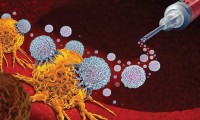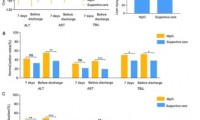-
CMT Research Foundation funds study investigating treatment for CMT1X disease
- Source: drugdu
- 103
- April 28, 2024
-
Researchers introduce new AI tool to help clinicians capture uncertainty in medical images
- Source: drugdu
- 70
- April 23, 2024
-
Francis Crick researchers reveal pathways linking intestinal inflammation and colitis
- Source: drugdu
- 82
- April 17, 2024
-
Nine UCL researchers secure £560m in research funding from ERC
- Source: drugdu
- 81
- April 17, 2024
-
Researchers call to reduce repeat antibiotic prescriptions for respiratory tract infections
- Source: drugdu
- 120
- April 13, 2024
-
US researchers reveal positive results of personalised vaccine for liver cancer
- Source: drugdu
- 113
- April 11, 2024
-
Unitaid funds over £6m to Liverpool researchers to treat major diseases
- Source: drugdu
- 141
- April 10, 2024
-
Cambridge researchers begin new trial for oesophageal cancer screening
- Source: drugdu
- 79
- April 7, 2024
-
Latest Research Results of Magnesium Isoglycyrrhizinate GM-DILI-002 Announced
- Source: drugdu
- 202
- April 4, 2024
-
Researchers Present First Study Using Biomimetic AI Digital Twins
- Source: drugdu
- 143
- April 3, 2024
your submission has already been received.
OK
Subscribe
Please enter a valid Email address!
Submit
The most relevant industry news & insight will be sent to you every two weeks.













